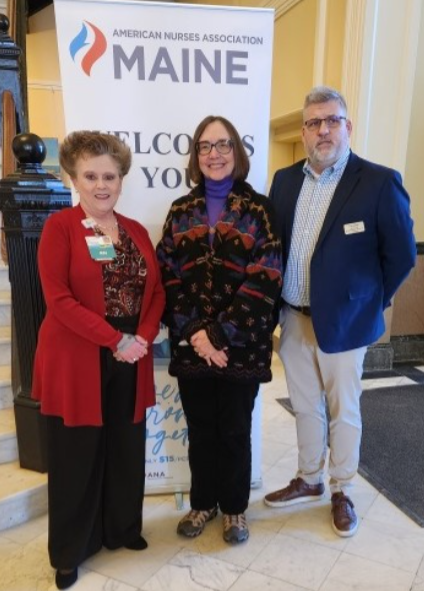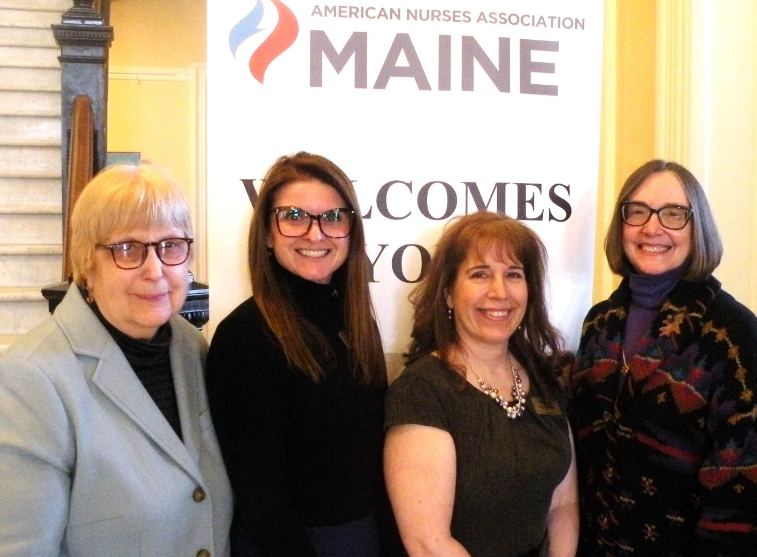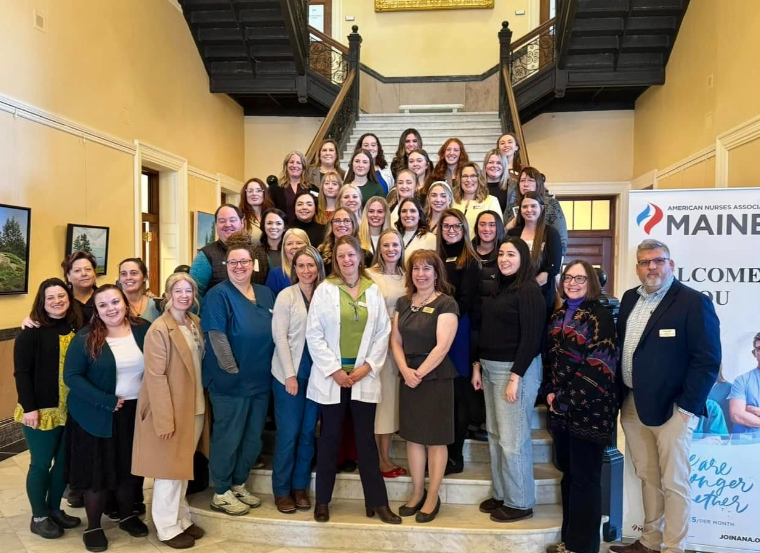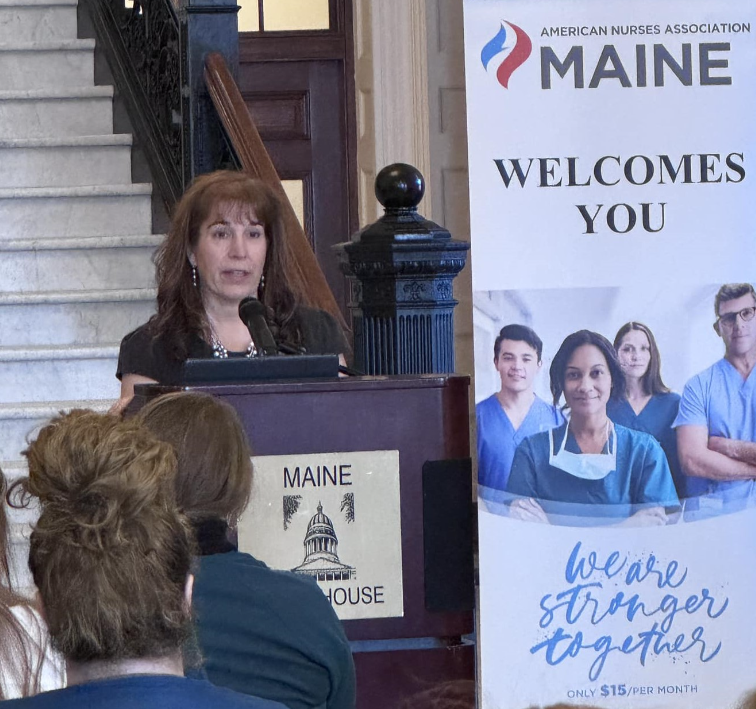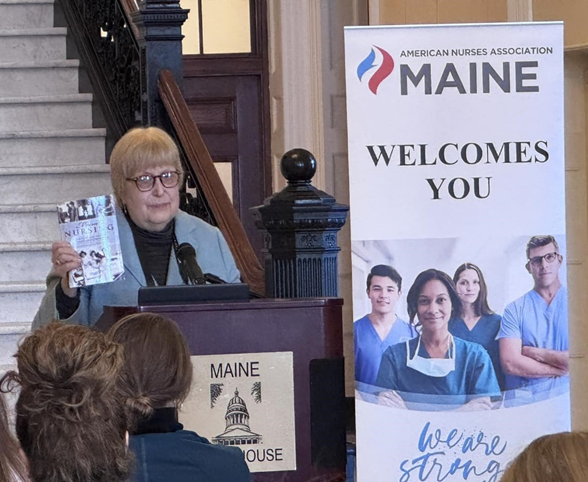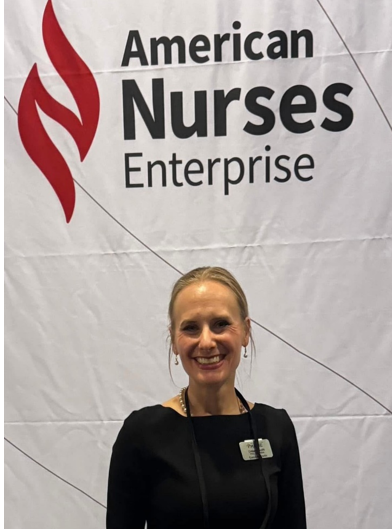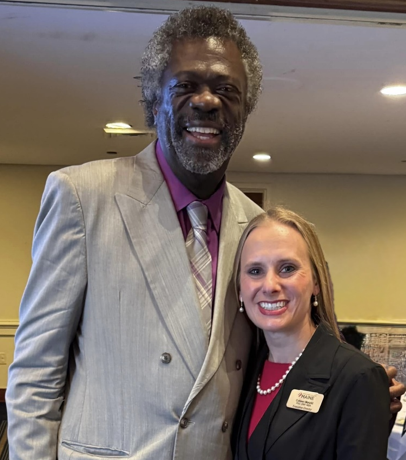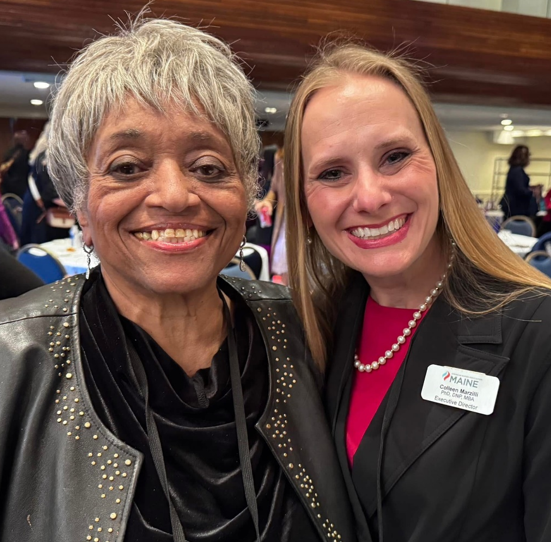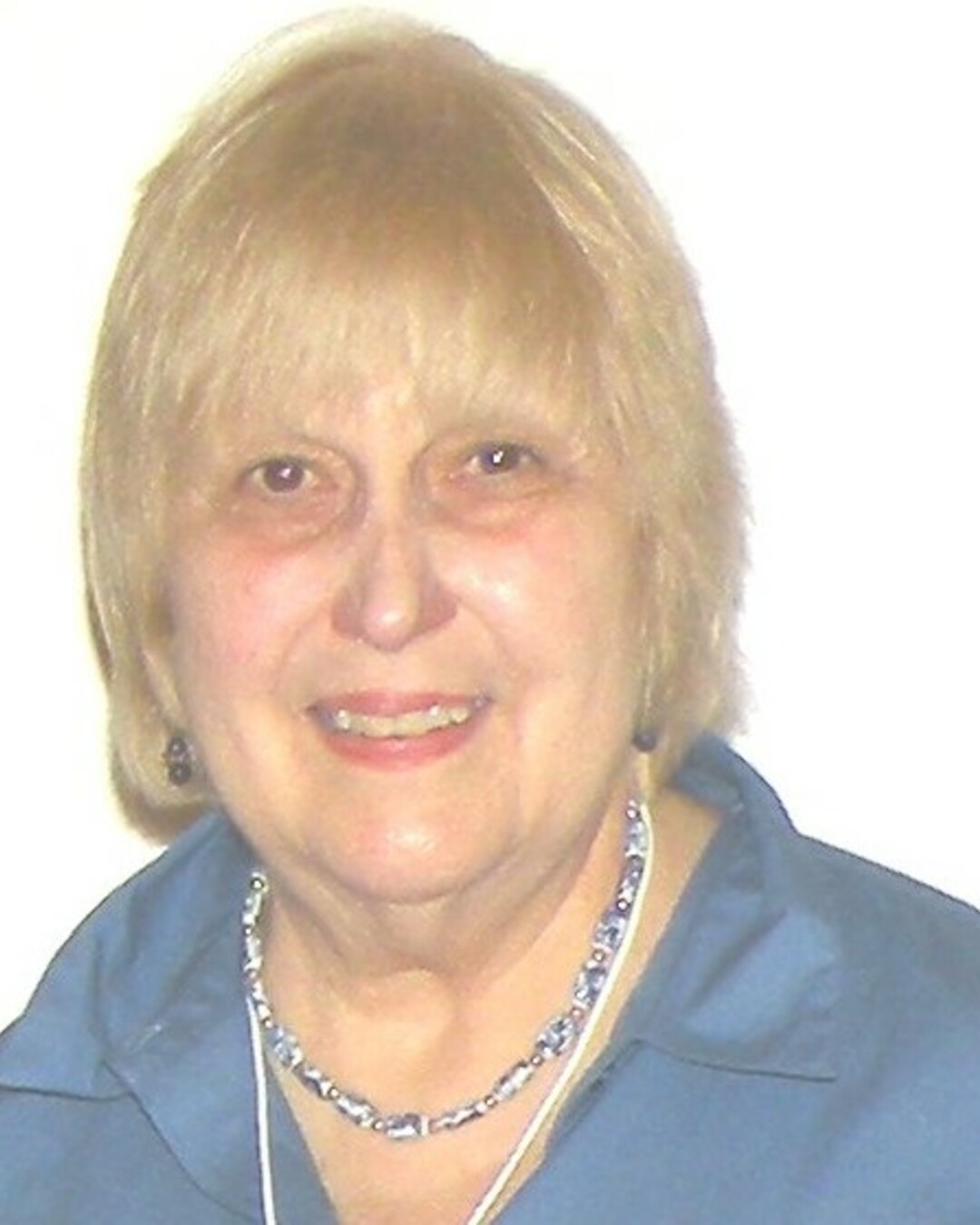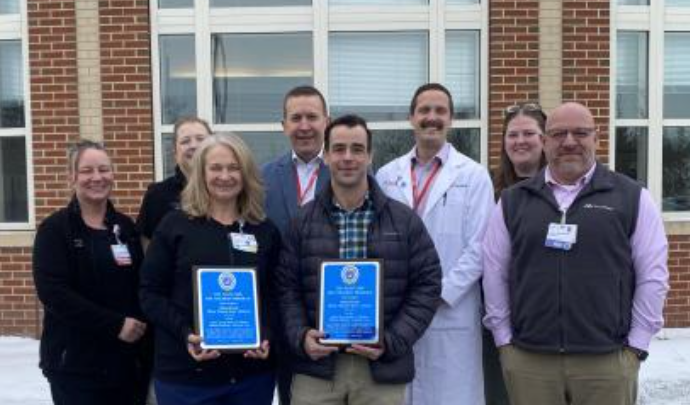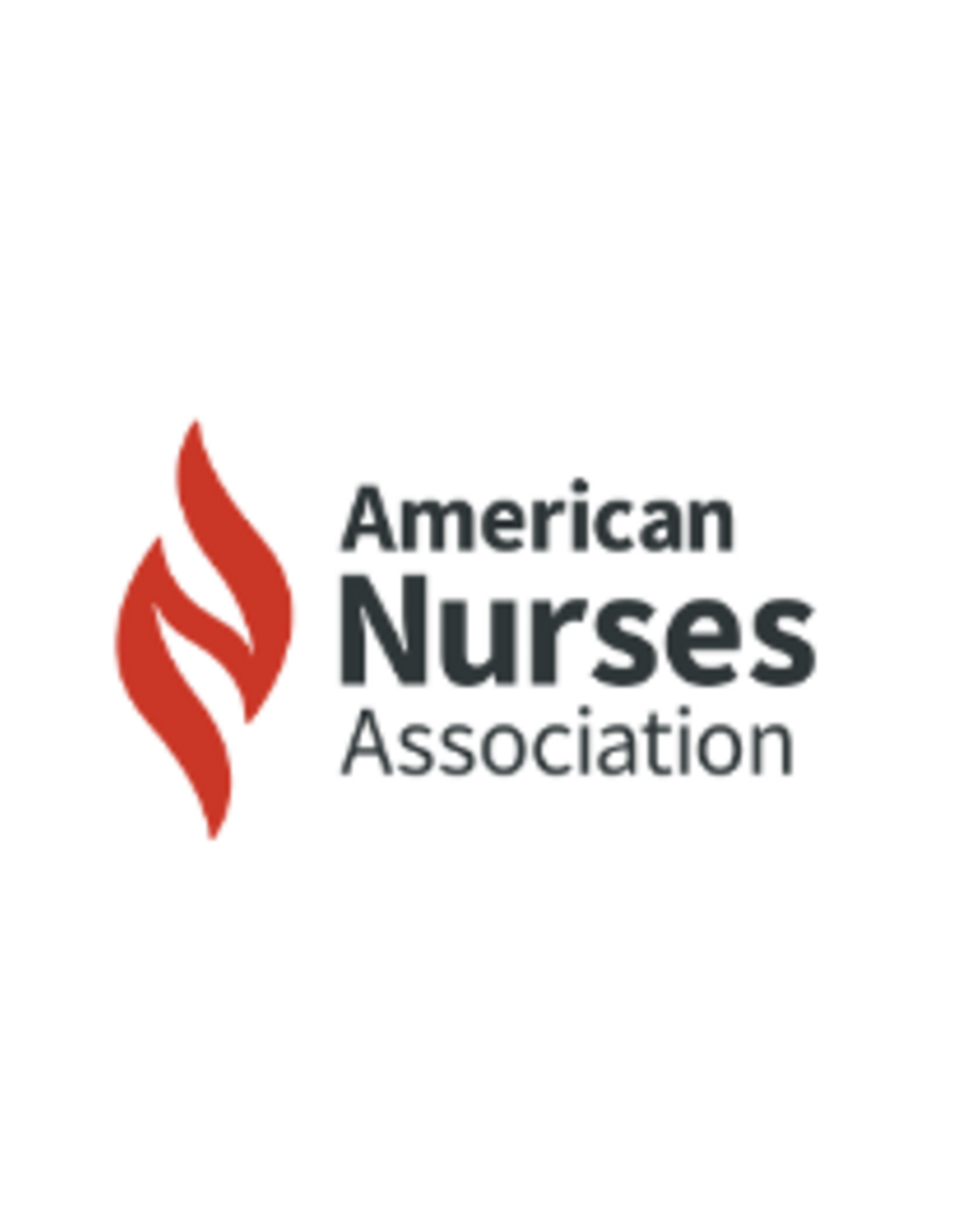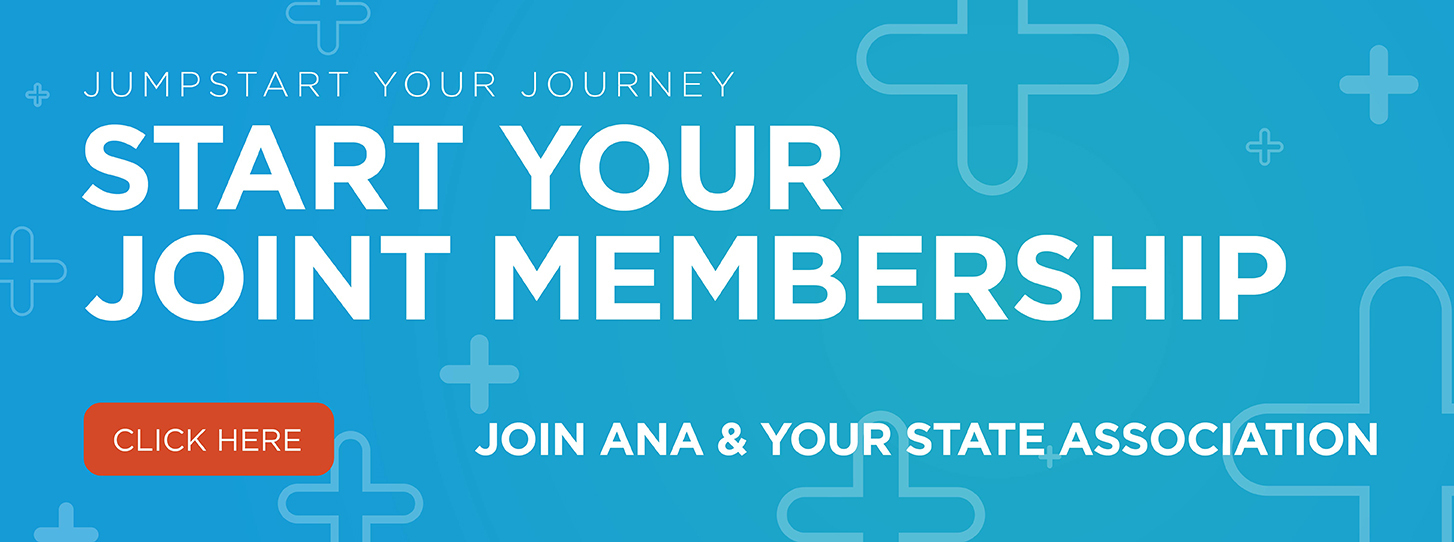Leadership in changing times
New scope and standards of practice reflect post-pandemic
realities
By Genna Rollins
The U.S. healthcare system has changed profoundly over the past
decade, and the skills, competencies, and knowledge nursing leaders need
to succeed in this reshaped landscape likewise have evolved. These new
realities pervade the American Nurses Association (ANA) Nursing
Leadership Scope and Standards of Practice, 3rd
Edition (NLSSP), published in April (hubs.ly/Q02B6x_K0).
This comprehensive document reflects more than a dusting off of its
2016 predecessor, with the very name of the specialty changed to nursing
leadership from nursing administration.
"We felt that administration was an older term used in hospitals many
years ago; one that doesn't reflect the expansive role leaders play in
today's healthcare continuum," said Edna Cadmus, PhD, RN, NEA-BC, FAAN,
co-chair of the review and revision work group that produced
the NLSSP. "The title didn't really reflect the people these
standards were serving. We also wanted to make sure that this document
didn't get shelved but was available for and used by all leaders within
an organization." A New Jersey Nurses Association member, Cadmus is
executive director for the New Jersey Collaborating Center for Nursing
and a clinical professor at Rutgers University School of Nursing.
"Nursing is evolving constantly, and our scope and standards have to
evolve as well," added work group co-chair Christina Dempsey, DNP, MBA,
RN, CENP, CNOR, FAAN. "We took the great work that had been done
previously and recognized that nursing leadership is about more than
nursing administration, which almost has a negative connotation. We
wanted this to be all about how nursing leaders lead and function in all
the various places where nursing leadership happens, which is way
outside just hospitals." Former CNO at Press Ganey, Dempsey, a Missouri
Nurses Association member, is CEO of Christina Dempsey Enterprises and
president of the Missouri Organization of Nurse Leaders.
Merged standards and competencies
Cadmus and Dempsey, selected as co-chairs of the work group by ANA
and the American Organization for Nursing Leadership (AONL),
respectively, reflect the two organizations' collaboration in developing
the new standards.
The work group utilized standards and competencies from ANA, AONL,
the American Association of Colleges of Nursing, and also reports from
the Institute of Medicine (2010) and National Academies Future of
Nursing reports (2022). Drawing from all these
sources, NLSSP outlines six standards of practice (assessment,
diagnosis, outcomes identification, planning, implementation, and
evaluation) and 13 standards of professional performance such as
communication, just and equitable practice, and collaboration. The
document also describes 116 accountabilities across 13 domains,
including incivility, bullying, and workplace violence; health advocacy;
and strategic and financial stewardship.
The standards of practice, professional performance, and
accountabilities relate to all nurse leaders, from those in informal and
frontline roles to executives, regardless of practice settings,
according to Cadmus and Dempsey. For example, leaders in different
settings would deal in various ways with their accountabilities
involving safety, quality, and risk management. In healthcare provider
organizations, frontline nurse leaders would be more concerned with
ensuring the provision of safe and quality care while nurse executives
would set and implement the organization's quality and safety strategy.
In contrast, a nurse leader in a payer organization might be more
engaged in evaluating the quality and safety care experience of member
beneficiaries.
In considering nurse leaders to join them on the work group, Cadmus
and Dempsey cast a wide net for 26 leaders from diverse backgrounds and
practice settings. "We had people who were expert in the LGBTQIA+
community to ensure that we were not only inclusive but also accurate
and current," Cadmus recalled. "We had people who were strong in acute
care, long-term care, home care, public health, and informatics. We had
representation from roles and places where nurse leaders
practice---correctional care, the military, academia, hospitals, and
ambulatory care."
One of the work group's heavy lifts was to develop a definition of
nursing leadership that encompassed its broad vision of the
specialty.
Nursing leadership defined
Nursing leadership is the specialty practice devoted to
collaboratively and collegially setting the vision, mission, and values
for health, human services, and social care. It is the art and science
of nursing leadership, influence, empowerment, and governance of and
with professional nurses and other team members that advance a culture
of clinical and operational excellence, including but not limited to,
innovation, transformation, advocacy, quality, safety, equity,
diversity,
inclusion, and engagement.
"This new definition is broad enough that it's all encompassing of
all roles and inclusive and can be applied by varied leaders in nursing,
whether they're leading nursing departments in hospital settings or care
settings across the continuum, in academic institutions, or professional
societies," said work group member Hussein M. Tahan, PhD, RN, FCM, FAAN,
a Maryland Nurses Association member and system vice president for
nursing professional development and workforce management and CNO for
MedStar Ambulatory Services and MedStar Medical Group in Columbia,
MD.
The NLSSP also brings out the emerging concept of
professional identity---the set of beliefs, attitudes, and
understandings about one's professional role---and calls on nurse
leaders to model the way by aligning their actions with shared
values.
"Dialogue and science involving professional identity in nursing
started to become more common right before the pandemic. We were
intentional about bringing in leading researchers in this area to share
with us what they're learning," noted Hussein. "If I expect the team I
lead or the practice I represent to present a professional stature,
demeanor, and existence, it's important for me to demonstrate that in
the way I act and model the way."
New emphases
In recognition of the new realities of healthcare,
the NLSSP emphasizes diversity, equity, inclusion, and social
justice; digital technology; innovation; and emergency mitigation
through recovery in ways the prior editions didn't. The pandemic, in
particular, brought hard-won knowledge and lessons that required
consideration, according to Cadmus.
The document calls on nurses to be leaders of social change, to
understand their responsibilities to dismantle racist systems, and to
confront dissonate cultural norms. The NLSSP urges nurse
leaders to consider these actions as their North Star.
"As nurse leaders, we're obligated to represent everyone, to create
opportunities for everybody, to demonstrate equity and diversity in the
way we make decisions, and to also accept feedback and recognize when we
may not be as inclusive as we ought to be so that we can recalibrate and
improve," Tahan elaborated.
In the innovation sphere, the document notes that nurse leaders "need
to have the will for disruptive change and a strategic thinking mindset
for innovation with a clear understanding of the problem they are trying
to solve." This declarative statement and others in the document reflect
new demands on nurse leaders forged by the pandemic, according to work
group member Joseph Marc A. de Veyra, DNP, MBA, MPH, RN, CNL, PCCN, a
Washington State Nurses Association member and CNO of NPHub. During
the NLSSP development process he served as associate chief
nursing officer for Harborview Medical Center in Seattle.
"Nurse leaders now must have a bias for execution, and we need to
pivot and adapt to our strategy on the fly," he observed. "Projects now
have to be completed on an accelerated timeline, so instead of
implementing after say 3 months of planning, we now have a short window
to plan, pilot early on even if it's not perfect, and sharpen our
strategy based on a month or so of learning. We can't go into decision
paralysis."
The NLSSP also pointedly notes that nurse leaders
"dramatically impact nurse well-being by shaping the day-to-day work
life of nurses, setting the culture and tone of the workplace,
developing and enforcing policies, and serving as exemplars of
well-being." The trials and tribulations of the pandemic also focused
the work group's thinking on this matter, according to Dempsey. "If
there was a word bigger than 'dramatically,' we would have used it," she
said. "It's that important, when you think about the data around a
positive work environment impacting engagement, patient experience, and
outcomes. The positive practice environment is huge and that is
absolutely set by the nurse leader."
With the NLSSP redefining nursing leadership, Cadmus,
Dempsey, and other members of the work group see good reason for the
document to be widely circulated and used extensively wherever nurse
leaders practice. "Of course, we'd like nurse leaders to read this and
integrate into their practices, but organizations can also use this in
the evaluation of their leaders," suggested de Veyra. "This is like the
road map to becoming the best nurse leader you can be as your
organization emerges from the pandemic."
--- Genna Rollins is a writer/editor at the American
Nurses Association.
American Nurse Journal. 2024; 19(8). Doi:
10.51256/ANJ082428
Reprinted with permission from ANA on the Frontline in
American Nurse Journal.






